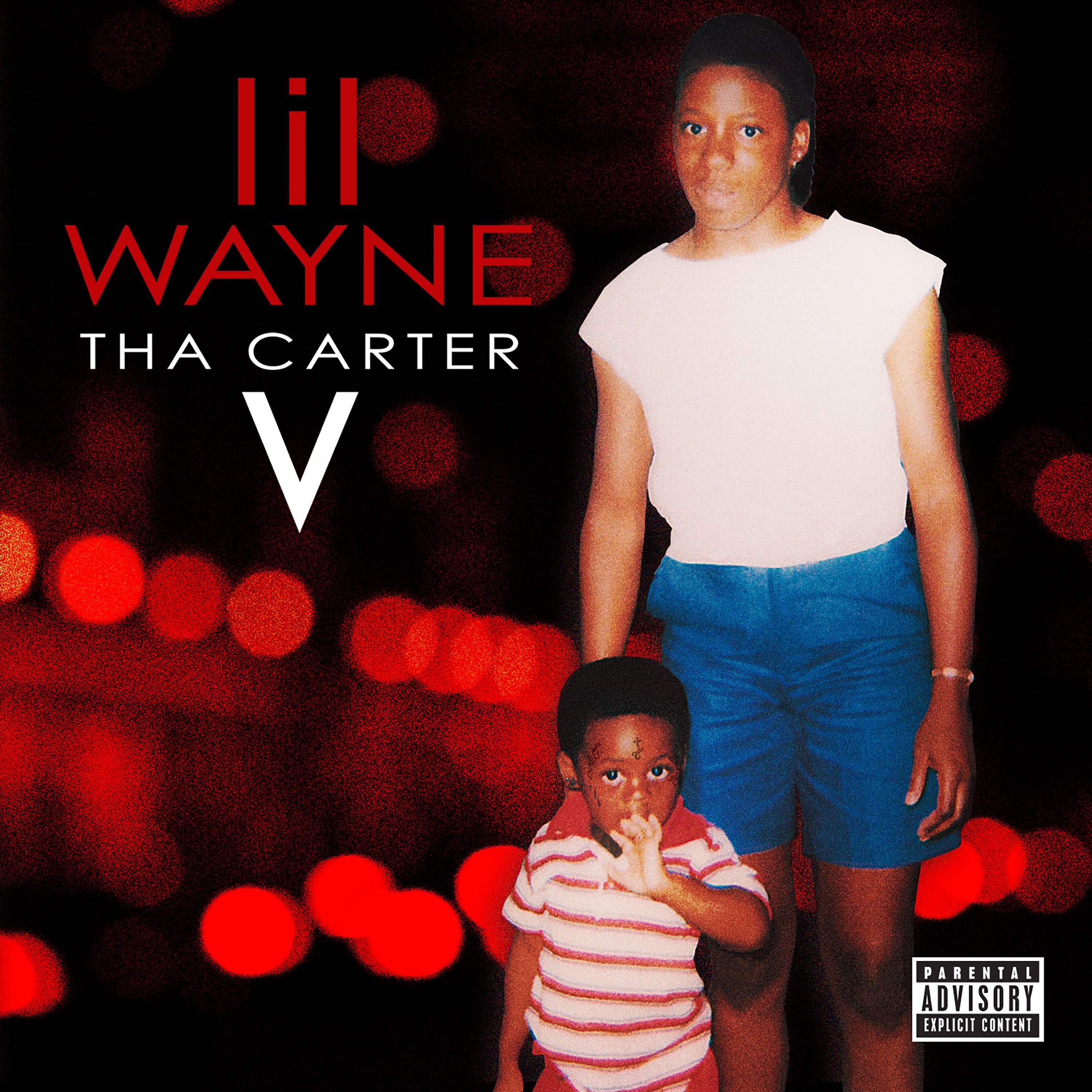Lil Wayne
Tha Carter V
YOUNG MONEY
7/10
“I AM NOW DEFENSELESS AND mentally DEFEATED & I leave gracefully and thankful I luh my fanz but I’m dun,” Lil Wayne tweeted in the middle of a fierce legal battle with Cash Money Records two years ago. Nothing spoils the image of a champion quite like openly admitting defeat. After one of the most consistent barrages of mixtapes and albums in hip-hop history, we watched his Tyson-esque loss of momentum, and the Detox-esque ballooning of expectations as the final installment of his classic Tha Carter series was delayed for years. But Tha Carter V is here at last, and while it indeed falls short of impossible expectations, it still stands as the fascinating tale of a legend stripping away his deadly ego once and for all.
V kicks off with a recording of his mother in tears, reflecting on the project’s unconscionable story and sympathizing with his existential pressures around this album’s release. The following “Don’t Cry” begins with a posthumous chorus from XXXTentacion, the slain leader of a rapturous new generation of hip-hop (despite his numerous personal failings), whose recent death by gunfire at age twenty resonates with the album’s theme of a young king’s demise. “I am not number one, it’s true” Wayne confesses at the start of his strongest verse on the entire record, before delivering his new manifesto: “Talent is God-given, be grateful / Fame is not a given, be humble / And conceit is self-driven, drive carefully.”
But in a sudden nosedive of quality, the following tracks reveal how his hubris still lingers. Swapping his signature percussive wheeze for a new swooping upper register, Lil Wayne seems to be emulating young emo-rap sensations like Lil Uzi Vert or NBA YoungBoy. This attempt at finding a new flavor is akin to seeing your father in a new Supreme cap, and several songs don’t contain a single strong lyric. At times it works, like on fan favorite “What About Me,” but other times he crashes and burns—on “Let It Fly,” for example, where Travis Scott rambles for about two minutes too long before Wayne finally comes in with a verse that rhymes the word “line” ad nauseam (no, not in a clever way).
Across twenty-three tracks, a few do live up to the years of Carter V mystification between thick membranes of filler, like the soul-chop cascades of “Demon” and “Dope New Gospel,” which channel his deep-cut Carter classics like “Let the Beat Build” or “Dark Side of the Moon,” with outer space imagery that only Wayne could deliver with sublimity. On much of the album’s latter half, there is more attention paid to Wayne’s anxieties than his triumphs, his relationships than his sexual exploits, and his acceptance of adulthood than there ever has been—if these signs of artistic growth took more precedence over commercial ends, Tha Carter V could have been the best in the series.
But if there is one song Wayne needed to make in order to save Tha Carter V and seal its place in rap history despite all the blunders, that song is “Let It All Work Out.” In a duet with a Sampha sample, Wayne’s final verse on the final Carter at long last confirms that his self-inflicted gunshot wound from age twelve was a suicide attempt. In heartbreaking detail, he walks us through the torture of being alone in the house, finding his mother’s pistol, and shooting himself in the chest: “God came to my side and we talked about it / He sold me another life and he made a prophet.” The verse immediately brings to mind every child with the potential for greatness who didn’t survive that gunshot wound or suicide attempt. It was always easy to view Lil Wayne as another narcissistic capitalist, bragging his way into superstardom, but now we know the real story—a poor boy from the streets of New Orleans who wanted to teach a generation how to become indestructible.







